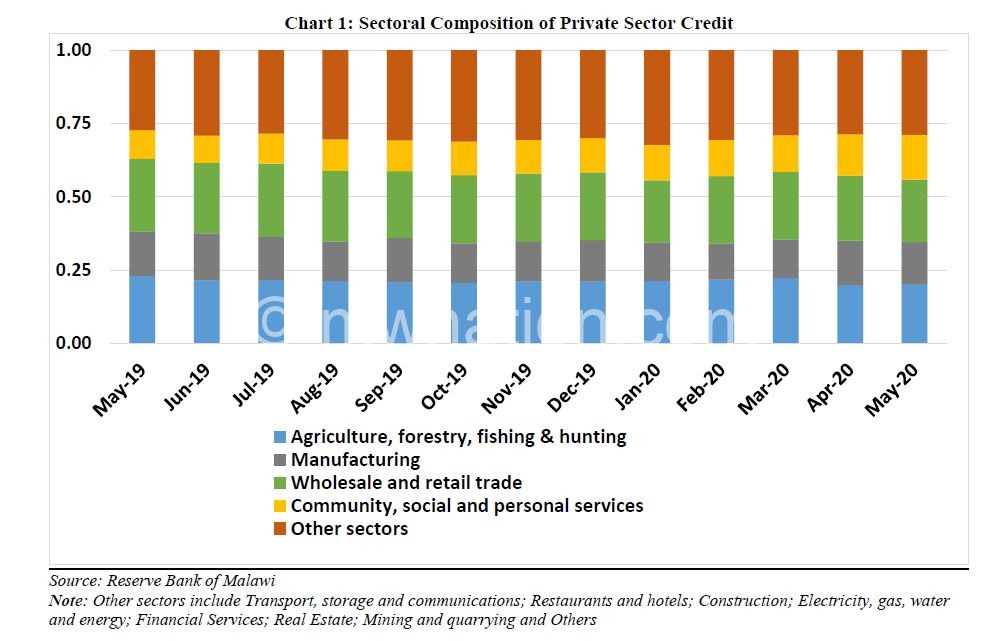Household loans surge
For two months running, individual and household loans have been registering an increase despite the wholesale and retail trade sectors holding the largest stock of outstanding private sector credit, Reserve Bank of Malawi (RBM) figures have shown.
Household loan is money borrowed by individuals, usually from banks or financial institutions. This includes mortgages, personal loans, student loans and consumer loans.

In its recently published May 2020 Monthly, RBM says during the month under review, household loans increased by K2.4 billion, following another increase of K14.5 billion in April.
This was before a decline of K5.5 billion registered in March, before the first confirmed case of the Covid-19 pandemic was reported on April 2 2020.
Reads the report in part: “During the month, all loan categories comprising individual and household loans, foreign currency denominated loans, commercial and industrial loans and mortgages recorded increases amounting to K2.4 billion, K2.1 billion, K1.6 billion and K1.5 billion, respectively.
“In terms of economic sectors, the monthly increase in private sector credit mainly emanated from community, social and personal services; agriculture, forestry, fishing and hunting and; financial services sectors which grew by K8.2 billion, K3.2 billion and K1.8 billion, respectively.”
Accordingly, the annual growth rate of private sector credit remained strong and was recorded at 18.6 percent in May 2020 comparing favourably to 18.9 percent and 13.5 percent registered in April 2020 and May 2019, respectively.
On a monthly basis, private sector credit rose by 2.5 percent (K13.8 billion) to K566.8 billion in the month of May 2020 as reflectedly the seasonal uptick in economic activity albeit somewhat subdued by the coronavirus pandemic.
The above notwithstanding, the wholesale and retail trade sector continued to hold the largest stock of the outstanding private sector credit at 22.4 percent, followed by the agriculture sector at 21.3 percent, community, social and personal services sector at 15.9 percent and Manufacturing at 15.0 percent.
Analysts say credit to the private sector continued to expand, partly supported by lower interest rates.
Meanwhile, RBM last week maintained the policy rate at 13.5 percent.
Consumer rights activist John Kapito observed earlier that the ongoing retrenchments and work-from-home programme as a result of the Covid-19 pandemic have had a huge impact on individual incomes following reduced economic activity.
“A huge number of people are now struggling to have two meals a day and the majority are either sacked or retrenched. With our borders closed, a lot are unable to carry out any cross-border trade and the big corporations are struggling with bank loans,” he said.
National Working Group on Trade chairperson Frederick Changaya stold Business News that private sector would have loved a policy rate reduction as it competes regionally with economies whose policy rates are single digit.
He said: “This makes export growth difficult. It even spoils import substitution effort. As a result, we can achieve sustainable and meaningful economic growth.
“But we can do with the maintained policy rate. I guess on the balance of things it is fair.”





